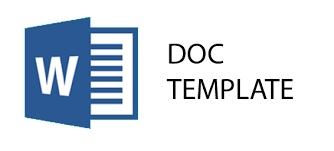Analisis Strategi Pengembangan Smart Destinations: Perspektif Service-Dominant Logic
DOI:
https://doi.org/10.37253/altasia.v5i2.7520Keywords:
Destinasi Pariwisata, Pariwisata Berkelanjutan, Smart Destinations, Service-Dominant Logic, Value Co-créationAbstract
Seiring pesatnya perkembangan teknologi informasi dan komunikasi digital (TIK) memberikan pengaruh yang signifikan bagi semakin maraknya usaha pariwisata yang membangun konsep smart destination guna memenuhi keinginan wisatawan. Berdasarkan hasil temuan dari beberapa referensi dan literatur, ternyata terdapat research gap mengenai belum adanya kajian lebih dalam tentang pengembangan strategi smart destination di Indonesia, terutama dalam penggunaan kerangka kerja service-dominant logic yang melibatkan wisatawan dalam pengembangan produk baru (value co-creation). Pendekatan deskriptif kualitatif juga digunakan untuk menggambarkan tingkatan strategi yang dibuat berdasarkan jangka waktu pelaksanaan. Diperoleh tiga berdasarkan jangka waktu pelaksanaan. Pertama, strategi jangka pendek (1-5 tahun) digolongkan dengan fokus program tata kelola smart destination, penggunaan alat berbayar elektronik dan pemasaran berbasis internet. Berikutnya, jangka menengah (5-10 tahun), program yang dilaksanakan antara lain penggunaan kendaraan listrik ramah lingkungan, GPS tracking tourist activity, monitoring pengelolaan lingkungan yang disimpan melalui database online, serta augmented reality for visitor management and interpretation. Terakhir, strategi jangka panjang (>10 tahun) penerapan destination low energy, otomatisasi layanan dan artificial intelegence. Utamanya semua penerapan strategi high technology yang menyesuaikan perkembangan jaman dirancang untuk memberikan kepuasan bagi wisatawan dengan tujuan agar berkunjung kembali dan berimbas pada keberlanjutan destinasi pariwisata. Secara keilmuan, studi ini dapat memberikan usulan alternatif kebijakan yang dapat digunakan bagi pengambil kebijakan dan menambah referensi bagi studi lanjutan terkait pengembangan smart destination.
Downloads
References
Assiouras, I., Skourtis, G., Giannopoulos, A., Buhalis, D., & Koniordos, M. (2019). Value co-creation and customer citizenship behavior. Annals of Tourism Research, 78, 102742. https://doi.org/10.1016/j.annals.2019.102742
Bachrian, F. A., & Suryawan, I. B. (2021). Implementasi Bandung Smart City Untuk Mewujudkan Smart Tourism Destination. Jurnal Destinasi Pariwisata, 9(2), 458. https://doi.org/10.24843/jdepar.2021.v09.i02.p26
Bagiran Ozseker, D. (2019). Towards a model of destination innovation process: an integrative review. The Service Industries Journal, 39(3–4), 206–228. https://doi.org/10.1080/02642069.2018.1491970
Barile, S., Grimaldi, M., Loia, F., & Sirianni, C. A. (2020). Technology, Value Co-Creation and Innovation in Service Ecosystems: Toward Sustainable Co-Innovation. Sustainability, 12(7), 2759. https://doi.org/10.3390/su12072759
Basbeth, F., Abd Ghani, N. H., & Sedyowidodo, U. (2018). Smart Destination Branding: The Need for New Capability and Opportunities for Entrepreneurship. 2018 International Conference on ICT for Smart Society (ICISS), 1–5. https://doi.org/10.1109/ICTSS.2018.8549943
Berliandaldo, M., Fasa, A. W. H., & Andriani, D. (2022). Implikasi Peran Destination Management Organization (DMO)–Destination Governance (DG) Dalam Pengembangan Pariwisata Berkelanjutan. Jurnal Kepariwisataan, 21(2), 113–129.
Berliandaldo, M., Fasa, A. W. H., Kholiyah, S., Chodiq, A., & Hendrix, T. (2021). Transformasi Digital dan Strategi Pengembangan Bisnis UMKM Yang Adaptif dan Berkelanjutan Pasca Pandemi Covid-19. Jurnal Analis Kebijakan, 4(2 SE-Articles). https://doi.org/https://doi.org/10.37145/jak.v4i2.468
Bhuiyan, K. H., Jahan, I., Zayed, N. M., Islam, K. M. A., Suyaiya, S., Tkachenko, O., & Nitsenko, V. (2022). Smart Tourism Ecosystem: A New Dimension toward Sustainable Value Co-Creation. Sustainability, 14(22), 15043. https://doi.org/10.3390/su142215043
Blazquez-Resino, J. J., Molina, A., & Esteban-Talaya, A. (2015). Service-Dominant Logic in tourism: the way to loyalty. Current Issues in Tourism, 18(8), 706–724. https://doi.org/10.1080/13683500.2013.863853
BPS. (2020a). Jumlah Kunjungan Wisatawan Mancanegara ke Indonesia Menurut Kebangsaan (Orang) Tahun 2016 - 2021.
BPS. (2020b). Statistik Objek Daya Tarik Wisata.
BPS. (2022). Indeks Pembangunan Teknologi Informasi dan Komunikasi 2021.
Buhalis, D., & Amaranggana, A. (2013). Smart Tourism Destinations. In Information and Communication Technologies in Tourism 2014 (pp. 553–564). Springer International Publishing. https://doi.org/10.1007/978-3-319-03973-2_40
Buhalis, D., & Foerste, M.-K. (2015). SoCoMo marketing for travel and tourism: Empowering co-creation of value. Journal of Destination Marketing & Management, 4(3), 151–161. https://doi.org/10.1016/j.jdmm.2015.04.001
Cabiddu, F., Lui, T.-W., & Piccoli, G. (2013). Managing Value Co-Creation In The Tourism Industry. Annals of Tourism Research, 42, 86–107. https://doi.org/10.1016/j.annals.2013.01.001
Chung, N., Lee, H., Ham, J., & Koo, C. (2021). Smart Tourism Cities’ Competitiveness Index: A Conceptual Model BT - Information and Communication Technologies in Tourism 2021 (W. Wörndl, C. Koo, & J. L. Stienmetz (eds.); pp. 433–438). Springer International Publishing.
Creswell, J. W., & Creswell, J. D. (2018). Research design: qualitative, quantitative, and mixed methods approaches (Fifth edit). SAGE Publications Sage CA: Los Angeles, CA.
Damayanti, M., Wahyono, H., Rahdriawan, M., Tyas, W. P., Sani, P. C., & Riptek, J. (2020). Penerapan Smart Tourism Di Kota Semarang. Journal Riptek, 14(2), 128–133. http://riptek.semarangkota.go.id
European Union (EU). (2019). Compendium of Best Practices: 2019 European Capital of Smart Tourism competition.
Fasa, A. W. H., Berliandaldo, M., & Prasetio, A. (2022). Strategi Pengembangan Desa Wisata Berkelanjutan Di Indonesia: Pendekatan Analisis PESTEL. Kajian, 27(1), 71–88.
Font, X., English, R., Gkritzali, A., & Tian, W. (Stella). (2021). Value co-creation in sustainable tourism: A service-dominant logic approach. Tourism Management, 82, 104200. https://doi.org/10.1016/j.tourman.2020.104200
Fyall, A., & Garrod, B. (2019). Destination management: a perspective article. Tourism Review, 75(1), 165–169. https://doi.org/10.1108/tr-07-2019-0311
Geels, F. W. (2002). Technological transitions as evolutionary reconfiguration processes: a multi-level perspective and a case-study. Research Policy, 31(8), 1257–1274. https://doi.org/https://doi.org/10.1016/S0048-7333(02)00062-8
González-Reverté. (2019). Building Sustainable Smart Destinations: An Approach Based on the Development of Spanish Smart Tourism Plans. Sustainability, 11(23), 6874. https://doi.org/10.3390/su11236874
Gretzel, U., Sigala, M., Xiang, Z., & Koo, C. (2015). Smart tourism: foundations and developments. Electronic Markets, 25(3), 179–188. https://doi.org/10.1007/s12525-015-0196-8
Hayslip, T. B., Gallarza, M. G., & Andreu, L. (2013). Service-Dominant Logic and Value in Tourism Management: A Qualitative Study within Spanish Hotels Managers. Journal of Business Theory and Practice, 1(2), 303. https://doi.org/10.22158/jbtp.v1n2p303
Ivars-Baidal, J. A., Celdrán-Bernabeu, M. A., Femenia-Serra, F., Perles-Ribes, J. F., & Giner-Sánchez, D. (2021). Measuring the progress of smart destinations: The use of indicators as a management tool. Journal of Destination Marketing & Management, 19, 100531. https://doi.org/https://doi.org/10.1016/j.jdmm.2020.100531
Ivars-Baidal, J. A., Celdrán-Bernabeu, M. A., Mazón, J.-N., & Perles-Ivars, Ã. F. (2019). Smart destinations and the evolution of ICTs: a new scenario for destination management? Current Issues in Tourism, 22(13), 1581–1600. https://doi.org/10.1080/13683500.2017.1388771
Jeong, M., & Shin, H. H. (2020). Tourists’ Experiences with Smart Tourism Technology at Smart Destinations and Their Behavior Intentions. Journal of Travel Research, 59(8), 1464–1477. https://doi.org/10.1177/0047287519883034
Kelly, K. (2016). The Inevitable: Understanding the 12 Technological Forces that Will Shape Our Future. Viking. https://books.google.co.id/books?id=4bogDAAAQBAJ
Kemenparekraf. (2020). Kontribusi pariwisata terhadap PDB Tahun 2016-2019.
Kemenparekraf. (2022). Rencana Strategis Kementerian Pariwisata dan Ekonomi Kreatif/Badan Pariwisata dan
Ekonomi Kreatif Tahun 2020 - 2024 (Permenparekraf No. 11 Tahun 2022).
Kennedy, P. S. J., L.Tobing, S. J., & L.Toruan, R. (2022). Smart Tourism Concepts to be applied for the Lake Toba Tourism Area. International Journal of Artificial Intelligence Research, 6(1). https://doi.org/https://doi.org/10.29099/ijair.v6i1.359
Komninos, N. (2014). The age of intelligent cities: Smart environments and innovation-for-all strategies. https://doi.org/10.4324/9781315769349
Koo, C., Mendes-Filho, L., & Buhalis, D. (2019). Smart tourism and competitive advantage for stakeholders. Tourism Review, 74, 1–5. https://doi.org/10.1108/TR-02-2019-208
Li, C.-Y., Fang, Y.-H., & Sukoco, B. M. (2021). Value proposition as a catalyst for innovative service experience: the case of smart-tourism destinations. Service Business, 15(2), 281–308. https://doi.org/10.1007/s11628-021-00443-y
Lin, Z., Chen, Y., & Filieri, R. (2017). Resident-tourist value co-creation: The role of residents’ perceived tourism impacts and life satisfaction. Tourism Management, 61, 436–442. https://doi.org/10.1016/j.tourman.2017.02.013
Lopez de Avila, A. (2015). Smart destinations: XXI century tourism. ENTER 2015 Conference on Information and Communication Technologies in Tourism, 4–6.
Lusch, R. F., Vargo, S. L., & Tanniru, M. (2010). Service, value networks and learning. Journal of the Academy of Marketing Science, 38(1), 19–31. https://doi.org/10.1007/s11747-008-0131-z
Mahadewi., N. M. E., Negarayana, I. B. P., Tirtawati, N. M., & Dianasari, D. A. M. L. (2016). Persepsi Wisatawan Terhadap Bali Sebagai Smart Tourism Destination.
Polese, F., Botti, A., Grimaldi, M., Monda, A., & Vesci, M. (2018). Social Innovation in Smart Tourism Ecosystems: How Technology and Institutions Shape Sustainable Value Co-Creation. Sustainability, 10(2), 140. https://doi.org/10.3390/su10010140
Prahalad, C. K., & Ramaswamy, V. (2004). Co-creation experiences: The next practice in value creation. Journal of Interactive Marketing, 18(3), 5–14. https://doi.org/10.1002/dir.20015
Prasetyo, H., & Rifai, M. B. (2022). Urgensi implementasi smart tourism untuk kemajuan pariwisata Indonesia. Journal of Tourism and Economic, 5(2), 147–160.
Rafdinal, W. (2021). Is smart tourism technology important in predicting visiting tourism destination? Lessons from West Java, Indonesia. Journal of Tourism Sustainability, 1(2), 102–115. https://doi.org/10.35313/jtos.v1i2.20
Rocha, J. (2020). Smart Tourism and Smart Destinations for a Sustainable Future. In Decent Work and Economic Growth, Encyclopedia of the UN Sustainable Development Goals (pp. 1–10). Springer Nature Switzerland AG. https://doi.org/10.1007/978-3-319-71058-7_88-1
Saarijärvi, H., Kannan, P. K., & Kuusela, H. (2013). Value coâ€creation: theoretical approaches and practical implications. European Business Review, 25(1), 6–19. https://doi.org/10.1108/09555341311287718
Saputra, A., & Roychansyah, M. S. (2022). Penerapan Smart Tourism Destination di Tiga Destinasi Wisata Kota Yogyakarta. Jurnal Sinar Manajemen, 9(1), 122–129. https://doi.org/10.56338/jsm.v9i1.2332
Sucipta, G. N. K., Utama, M. S., Dewi, H. U., & Yuliarmi, N. N. (2019). Smart Tourism Destination Management In Karangasem Regency Of Indonesia. Russian Journal of Agricultural and Socio-Economic Sciences, 93(9), 256–273. https://doi.org/10.18551/rjoas.2019-09.28
Sugiyono. (2017). Metode Penelitian Kuantitatif, Kualitatif dan R&D. Alfabeta.
Susanto, E., Novianti, S., Rafdinal, W., Prawira, M. F. A., & Septyandi, C. B. (2020). Visiting Tourism Destination: Is It Influenced by Smart Tourism Technology? Journal of Indonesian Tourism and Development Studies, 8(3), 145–155. https://doi.org/10.21776/ub.jitode.2020.008.03.04
Trunfio, M., & Campana, S. (2019). Drivers and emerging innovations in knowledge-based destinations: Towards a research agenda. Journal of Destination Marketing & Management, 14, 100370. https://doi.org/https://doi.org/10.1016/j.jdmm.2019.100370
Vargo, S., Koskela-Huotari, K., & Vink, J. (2020). Service-Dominant Logic: Foundations and Applications. In In
Bridges, E. and Fowler, K. (Eds.) The Routledge Handbook of Service Research Insights and Ideas, (pp. 3–23). New York: Routledge.
Vargo, S. L., & Lusch, R. F. (2004). The Four Service Marketing Myths. Journal of Service Research, 6(4), 324–335. https://doi.org/10.1177/1094670503262946
Vargo, S. L., & Lusch, R. F. (2008). Service-dominant logic: continuing the evolution. Journal of the Academy of Marketing Science, 36(1), 1–10. https://doi.org/10.1007/s11747-007-0069-6
Vargo, S. L., & Lusch, R. F. (2011). It’s all B2B…and beyond: Toward a systems perspective of the market. Industrial Marketing Management, 40(2), 181–187. https://doi.org/10.1016/j.indmarman.2010.06.026
Vargo, S. L., & Lusch, R. F. (2017). Service-dominant logic 2025. International Journal of Research in Marketing, 34(1), 46–67. https://doi.org/10.1016/j.ijresmar.2016.11.001
Vargo, S., & Lusch, R. (2006). Service-dominant logic: What it is, What it is not, What it might be. The service dominant logic of marketing: Dialog debate and directions. Journal of the Academy of Marketing Science, 6, 281–288.
Wang, D., Li, X. (Robert), & Li, Y. (2013). China’s “smart tourism destination†initiative: A taste of the service-dominant logic. Journal of Destination Marketing & Management, 2(2), 59–61. https://doi.org/10.1016/j.jdmm.2013.05.004
Wang, Y., Shen, S., Sotiriadis, M., & Zhang, L. (2020). Suggesting a Framework for Performance Evaluation of Tourist Attractions: A Balance Score Approach. Sustainability, 12(15), 6220. https://doi.org/10.3390/su12156220
Williams, A. M., Rodriguez, I., & Makkonen, T. (2020). Innovation and smart destinations: Critical insights. Annals of Tourism Research, 83, 102930. https://doi.org/https://doi.org/10.1016/j.annals.2020.102930
World Tourism Organization. (2021). Recommendations for the Transition to a Green Travel and Tourism Economy. https://doi.org/https://doi.org/10.18111/9789284422814
Downloads
Published
Issue
Section
License
Copyright (c) 2023 Altasia Jurnal Pariwisata Indonesia

This work is licensed under a Creative Commons Attribution-NonCommercial 4.0 International License.
The article publication is wholly owned by the Indonesian Tourism Journal (ALTASIA).






.png)





